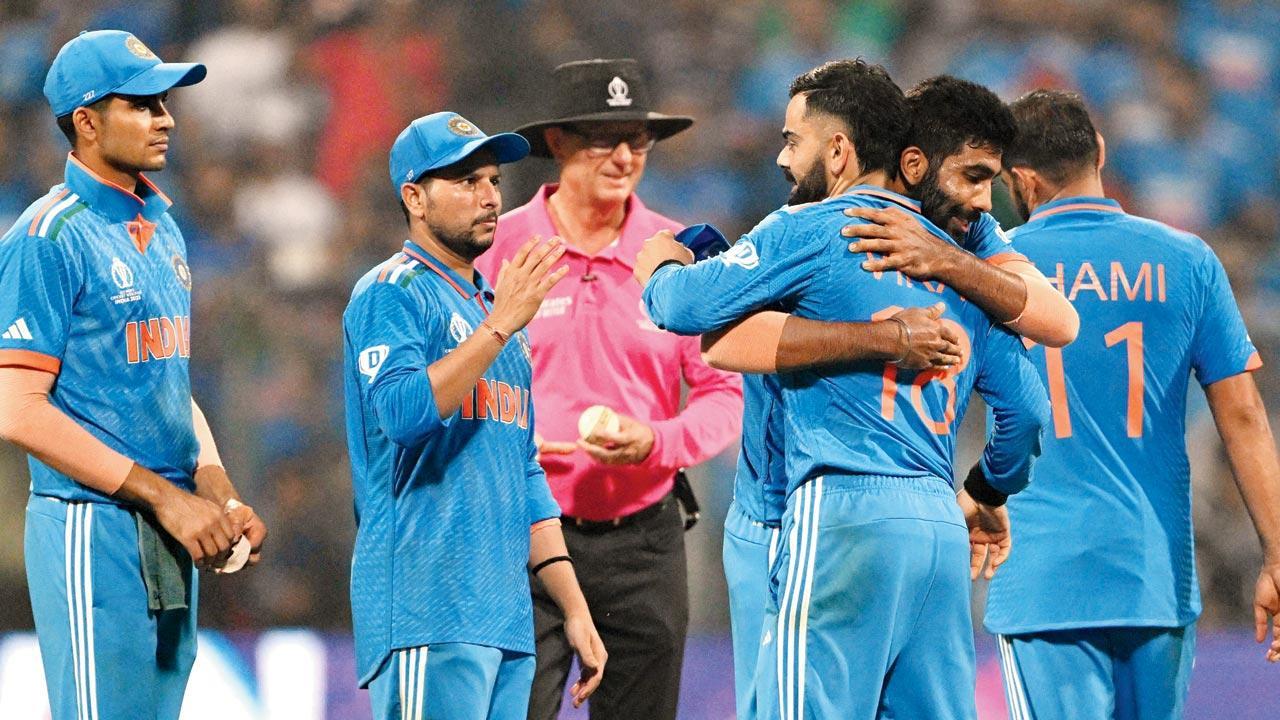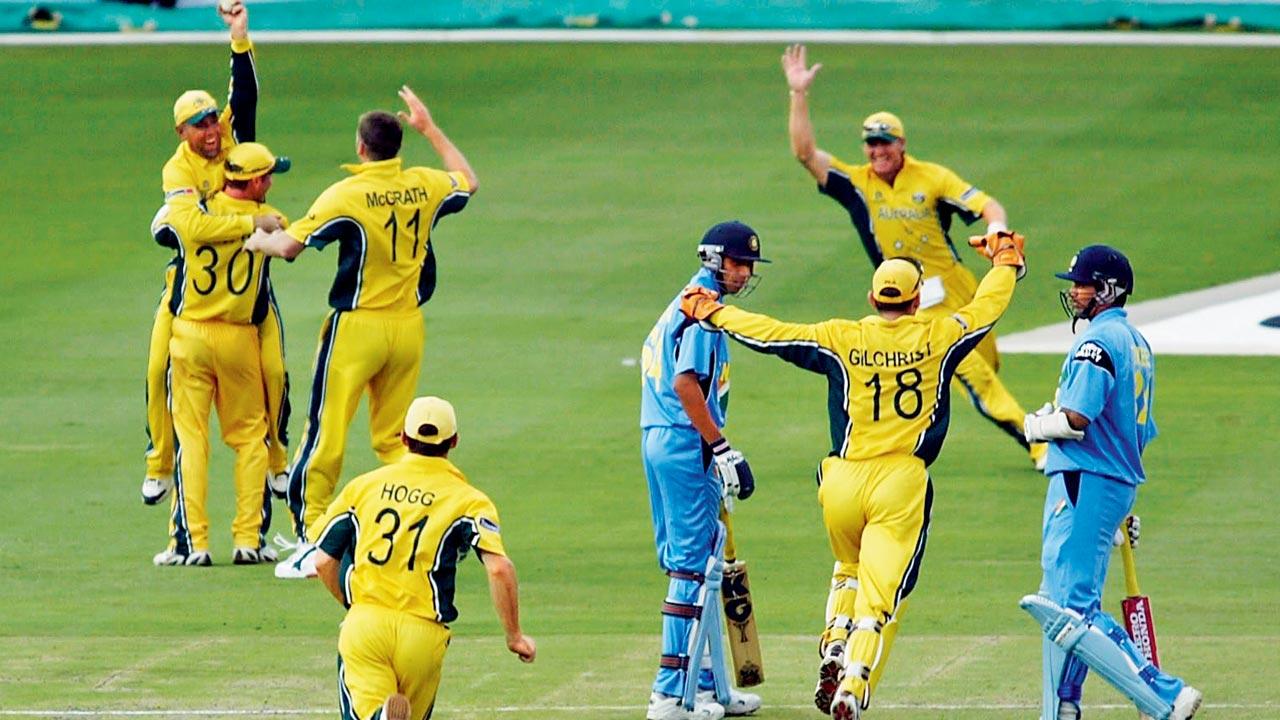Head coach Dravid, who was part of the 2003 final which India lost to Oz and skipper Rohit have got the team to internalise rather than focus on extraneous factors, so it is certain that the hosts won’t lose Sunday’s finale in the head

India players celebrate winning the semi-final against New Zealand at Wankhede on Wednesday. Pic/AFP
Starting from the quarter-final in 2011 at the old Sardar Patel Stadium (where the new Narendra Modi Stadium has since come up) at Motera in this same city, India have won three of their four World Cup showdowns against Australia, including in Chennai a month and a half back. While the six-wicket win in the opening game for both teams is freshest in memory, it is hard not to remember the last time the teams had battled in a World Cup before 2011, on 23 March 2003.
ADVERTISEMENT
Fireworks at Wanderers
The Wanderers in Johannesburg, often referred to as The Bullring for obvious reasons, was the setting for a face-off between the two strongest teams of the 2003 World Cup in a title clash that promised plenty of fireworks. Truth to tell, there was no shortage of fireworks, but most of them emanated from the blades of Adam Gilchrist, Matthew Hayden, skipper Ricky Ponting and Damien Martyn as the Aussies buried India under an avalanche of runs.
 Australia players celebrate after winning the 2003 World Cup final against India at Johannesburg. Pic/Getty Images
Australia players celebrate after winning the 2003 World Cup final against India at Johannesburg. Pic/Getty Images
The only thing that went right for Sourav Ganguly was the toss. India had run an excellent campaign leading up to the final, bouncing back from a nine-wicket hammering by the Aussies to register eight wins on the bounce and storm into the final. Zaheer Khan, Javagal Srinath and Ashish Nehra formed a potent pace pack, with one of Harbhajan Singh (mainly) or Anil Kumble offering the specialist spin threat. Rahul Dravid’s willingness to keep wickets meant India batted deep, and because so many of the top-order batsmen—Sachin Tendulkar, Virender Sehwag, Ganguly himself and Yuvraj Singh—could bowl, there was no dearth of options if one of the specialists had a bad day.
Ganguly’s decision not bad
India had chased wonderfully all tournament long, so there was merit in Ganguly’s decision to bowl first. But all their plans went awry in the very first over. Zaheer started with a no-ball, then got involved in a war of words first with Gilchrist, then Hayden; like the rest of the team, the left-arm quick was pumped up, but perhaps too much so. Fifteen came off the first over, setting the tone for a dominant Aussie batting display that netted them 359 for two. From then on, only one team was in the contest, India folding up for 234 to surrender by 125 runs.
This Indian team of Rohit Sharma’s hasn’t been short on aggression, but very little of it is of the verbal kind. Dravid, an integral part of the run to the 2003 final and now the head coach, as well as Rohit have got the team to internalise rather than focus on extraneous factors, so it is certain that India won’t lose this game in the head. Australia know how to win—which is why they have lifted the World Cup five times—but then, so do India. Sunday should be an epic.
 Subscribe today by clicking the link and stay updated with the latest news!" Click here!
Subscribe today by clicking the link and stay updated with the latest news!" Click here!







